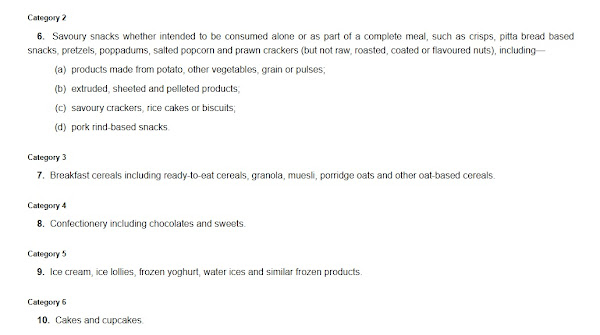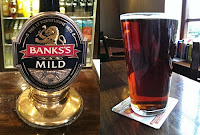During the year, I have made 61 posts on this blog, including this one, the highest figure since Covid. (it’s possible, although unlikely, that I will do another one between today and New Year) I had a particular rush of blood to the head in February and October, with 8 posts in each month. By far the most pageviews were for my post about the pending retirement of Humphrey Smith, which for some reason has attracted more than three times as many as any other. Other popular topics included Fresh Ale (which never seems to have amounted to much), the perennial issue of children in pubs, and the recent one about the implications of using Digital ID for age verification in pubs. I’ve continued to attract a healthy volume of comments, many enlightening and constructive, others unfortunately less so.
I’ve continued to add entries to my Closed Pubs blog, although not at the same rate as in the past few years. As I mentioned last year, the disappearance of the Fullpint news aggregation Twitter account deprived me of a source of material, but to some extent this has been replaced by GB Booze, which also posts pub-related news items. This originated as Southampton Pubs, but subsequently widened its scope, which helps explain why there have been a number of entries from the Southampton area over the course of the year.
One interesting pub that I visited for the first time this year was the Cross Keys, a traditional canalside local in Penkridge, Staffordshire. It’s a congenial pub in its own right, but it has the distinction of still dispensing cask beer through electric metered pumps, something I don’t think I’d experienced in the previous decade. I know this is a lost cause, but I just think this is a preferable system, producing better condition and mouthfeel, and not knocking the stuffing out of the beer, as can all too easily happen with handpumps. Not to mention reliably guaranteeing full measure.
In the summer, I had a holiday in South-West Scotland. This was essentially a sightseeing trip, not a drinking trip, but even so my experience with cask beer fell short of my limited expectations. The worst was in the Good Beer Guide listed Douglas Arms in Dumfries, where in the evening of what had been a sunny but not particularly hot day, I was served a pint of cask that was crystal clear, but absolutely at room temperature. I didn’t take it back, as it would have been pointless, and I’m extremely unlikely to ever go there again. In contrast, I found a very congenial atmosphere in the keg-only Hole I’The Wa’ (pictured), a traditional pub located down an alleyway off Dumfries’ High Street, which was one of my best pub discoveries of the year.
In July, there was a general election and a universally expected change of government, although the incoming Labour administration enjoyed a much larger majority in seats than it did in votes. It is beyond the remit of this blog to stray on to wider political issues, but I predicted at the time that there was likely to be an intensification of the trend towards lifestyle restrictions that had characteristed their predecessors.
It didn’t take long to float a proposal to ban smoking in outdoor drinking areas of licensed premises, something that would have dealt a severe blow to wet-led pubs. After a wave of objections, they abandoned the idea, but the response was not that they thought it was wrong in principle, but that this wasn’t the time to bring it in. Then, health minister Andrew Gwynne, one of my local MPs, stated that pubs should be made to close earlier to address alcohol-related problems in society. He was pretty swiftly slapped down, but again this illustrates their train of thought.
The government confirmed that they were going to press ahead with Rishi Sunak’s plan to introduce a creeping smoking ban that would prevent anyone born after a set date from purchasing tobacco. This is a measure that is not only appallingly illiberal in principle, but would encounter serious practical problems in its application. It would create a two-tier society, discriminate against the young, and over time effectively hand the tobacco trade over to the black market. While the idea had originated in New Zealand, after a change of government in 2023 they dropped it, leaving the UK as trailblazers in this particular form of insanity.
However, a much more immediate threat to the pub trade emerged from Rachel Reeves’ first budget in October. This presented pubs with a quadruple whammy of increased costs and regulation – increasing employers’ national insurance, increasing the minimum wage by well above the rate of inflation, slashing the rate of business rates relief, and giving workers full employment rights from Day 1. Offsetting this with a marginal reduction in draught beer duty was an insulting sop. The worst aspect of this was reducing the threshold for employers’ National Insurance from £9,100 to £5,000, which will hit a sector employing many low-paid and part-time workers particularly hard. So expect to see many more pubs struggling, cutting hours and closing entirely in the New Year.
The tide of beers being reduced to 3.4% ABV to take advantage of a much lower duty rate continued, with John Smith’s Extra Smooth, the country’s biggest ale brand, succumbing in February. However, it now seems to have run out of steam, and presumably all the major brands that people just drink as a matter of routine without giving it much thought have now fallen into line. Plus, as I wrote in October, despite the brewers’ claims that it is responding to a trend towards healthier lifestyles, in reality it is entirely driven by tax considerations, not consumer demand. It is significant that Carlsberg lager continues to be brewed at 3.8% for Wetherspoon’s, who must be its biggest customer by far. And there was perhaps a straw in the wind when Marble Brewery restored the stremgth of their Pint to 3.9%, having cut it late last year.
There was a steady drip-drip of negative news from the Carlsberg-Marston’s conglomerate – abandoning use of the Burton Union system, Carlsberg buying buying out Marston’s remaining minority stake, closing the Wolverhampton brewery and withdrawing a long list of cask ale brands including the once iconic Banks’s Mild. Obviously all of this was a cause for sadness, but a lot of the anger in response to it seemed misplaced. It is simply not realistic to expect a large commercial business to keep brewing systems, plants and beer brands in existence purely out of sentiment.
However, something was salvaged, as Thornbridge brewery managed to obtain one of the Union sets and proceeded to use to it brew both a version of their signature Jaipur IPA, and a dedicated English-style IPA, the latter of which I can confirm was excellent. This illustrates how what may no longer make commercial sense for a large company can attract a following in more of a niche, enthusiast market. Maybe they could also consider brewing a 4.5% Burton-style pale ale that would be a direct replacement for Union Pedigree.
As I mentioned above, my post about Humphrey Smith retiring from Samuel Smith’s Brewery gained by some way the highest number of page views over the year. In theory, this should have happened by the end of this month, but only time will tell to what extent it affects the company’s often eccentric and self-defeating approach. The two issues that need to be urgently addressed are sorting out the endemic problem of recruiting new licensees, and dropping the absurd and counter-productive mobile phone ban. But hopefully change can happen without destroying the pubs’ highly distinctive character. The Guardian recently published a very interesting long-form article looking into the Sam Smith’s empire.
There has been the usual unfathomable merry-go-round of pub openings and closings. The Swan in Holmes Chapel, which briefly reopened in the summer of 2023 but swiftly closed again, has reopened, but the Boar’s Head, in a prominent location on Stockport Market Place, abruptly closed in November of this year, and the highly characterful Queen’s Head remains firmly shut. Several attractive properties in Cheshire, such as the Bird in Hand at Mobberley and the Cheshile Midland in Hale, remain long-term closed.
But, where Sam Smith’s pubs do stay open, they can offer a very congenial and welcoming atmosphere. It was a pleasure to be able to present in November, on behalf of the local CAMRA branch, a Pub of the Month award to the Sun in September in Burnage, Manchester (pictured), where the licensees have worked hard to built a community spirit in area otherwise denuded of traditional pubs. And, the following month, a second award went to the Blue Bell in Levenshulme, the other of the two out of five Sam’s pubs in the branch area that is still open. I wonder if any other CAMRA branch has ever made two such consecutive awards.
During the year, a particularly interesting book that I read was Historic Building Mythbusting by James Wright. In this book, the author, a qualified building archaeologist, debunks many of the common myths that surround historical buildings. One chapter that will be of specific interest to pub-lovers is where he shows that many well-known pubs’ claim to great antiquity rest on very shaky foundations, but there are others, often less-known, whose origins in mediaeval times can be reliably authenticated. He also holes below the waterline the claims of many old pubs that they are built from salvaged ships’ timbers, often taken from the Spanish Armada.
Probably the single most significant point made in the book is debunking the common theory that spiral staircases in mediaeval castles were almost always built with a clockwise rotation to give an advantage to right-handed swordsmen defending them against attackers. This is widely prevalent, and is often found in official sources, but has no verifiable foundation whatsoever.
And what can we expect for 2025? I’m not going to make any predictions, beyond confidently saying that it won’t be uneventful…
















.jpg)





